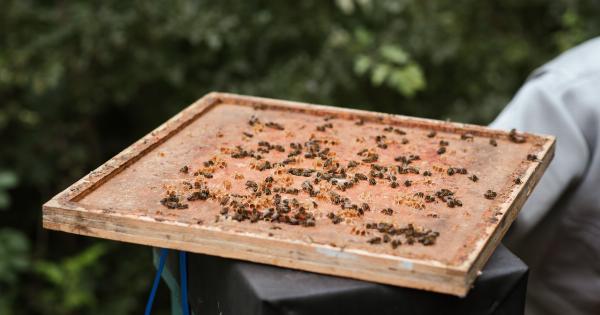The Juvenile virus, also known as the JV virus, is commonly found in children and young adults. It is a type of polyomavirus that is spread through bodily fluids such as urine and saliva.
While the virus may not cause any symptoms in children, it can pose a serious risk for adults who are immunocompromised. In this article, we will explore what the Juvenile virus is, how it can affect adults, and what steps can be taken to prevent infection.
What is the Juvenile Virus?
The Juvenile virus is a type of polyomavirus that is often found in children and young adults. It was first discovered in the late 1970s and is known to be present in up to 80% of young children.
The virus enters the body through the mucous membranes of the nose or mouth and can be shed in urine for several months after initial infection.
In most cases, the Juvenile virus does not cause any symptoms in children. However, in rare cases, it can lead to a mild illness known as Juvenile idiopathic arthritis (JIA).
JIA is a type of arthritis that affects children under the age of 16 and typically causes joint pain, stiffness, and swelling. While the exact cause of JIA is not known, it is believed to be triggered by the JV virus.
How Can the Juvenile Virus Affect Adults?
While the Juvenile virus may not pose a risk for healthy adults, it can be dangerous for those with weakened immune systems. In such cases, the virus can lead to a serious condition known as progressive multifocal leukoencephalopathy (PML).
PML is a rare and serious condition that affects the central nervous system. It is caused by the JV virus infecting certain types of brain cells.
Symptoms of PML can include changes in vision, difficulty speaking or understanding language, weakness or paralysis in the limbs, and cognitive changes. PML can be fatal, especially in those with weakened immune systems.
In addition to PML, the JV virus can also increase the risk of kidney damage in immunocompromised adults. If the virus infects the kidneys, it can cause a condition known as polyomavirus-associated nephropathy (PVAN).
PVAN can lead to kidney failure if left untreated, making early detection and treatment crucial for those at risk.
Who is at Risk for the Juvenile Virus?
While the JV virus is commonly found in children and young adults, it can pose a risk for adults with weakened immune systems.
This includes individuals with HIV/AIDS, those undergoing immunosuppressive therapy for organ transplantation, and those with certain autoimmune disorders.
Individuals who receive immunosuppressive therapy after receiving an organ transplant are at particular risk for JV virus-related complications.
In fact, transplant recipients who are seropositive for the virus prior to transplantation are at a significantly higher risk for PVAN compared to those who are seronegative.
Preventing JV Virus Infection
Preventing JV virus infection is especially important for individuals with weakened immune systems. The following measures can help prevent infection:.
- Washing hands regularly with soap and water for at least 20 seconds
- Using hand sanitizer when soap and water are not available
- Avoiding close contact with individuals who are sick
- Avoiding sharing utensils, cups, or other personal items
- Covering mouth and nose when coughing or sneezing
- Avoiding contact with urine or feces from individuals who have been diagnosed with JV virus infection
If you have a weakened immune system and are at risk for JV virus infection, talk to your healthcare provider about getting vaccinated.
While there is no specific vaccine for the JV virus, vaccines for other viruses such as the flu and pneumonia can help prevent secondary infections that can weaken the immune system further.
Conclusion
The Juvenile virus is a common virus that typically does not cause symptoms in children. However, for adults with weakened immune systems, the virus can pose a serious risk.
PML and PVAN are two possible complications that can occur from JV virus infection, and prevention is key for those at risk. By taking steps to prevent infection and working with healthcare providers to manage the condition, individuals with weakened immune systems can reduce their risk of complications and stay healthy.





























